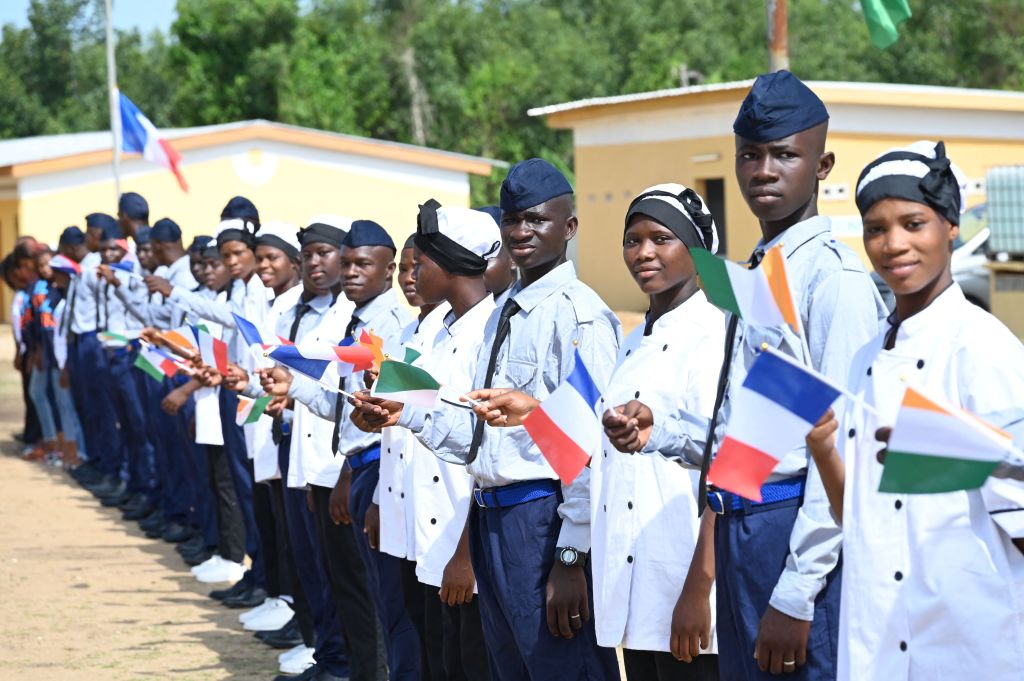ADF STAFF
In a series of crudely produced propaganda cartoons circulated on the internet and through West African social media, France is portrayed as a predatory giant rat, a hoard of zombies and a gigantic cobra. All of these menaces are attacking righteous African Soldiers, with powerful Wagner Group Russian mercenaries coming to the Africans’ rescue.
At the end of one cartoon, a character says, “I hear that Ivory Coast also needs help.” Another cartoon begins with an evil Frenchman declaring, “Ivory Coast belongs to France!”
Russia makes no secret of its desire to expand its military influence into new parts of Africa, including Côte d’Ivoire, formerly known as Ivory Coast. The Wagner Group has replaced France as the main foreign security force in the former French colonies of Mali and the Central African Republic (CAR). The Globe and Mail of Canada reports that Russia also is looking for possible deals to do the same in Burkina Faso, Chad and Guinea.
The real prize for Russian influence, however, would be Côte d’Ivoire, the fast-growing economic and trade hub that has evolved into a regional economic powerhouse. Companies are establishing their corporate headquarters there, particularly in the official economic capital of Abidjan, a key port city on Africa’s west coast.
Although there is no indication that Côte d’Ivoire has any interest in a partnership with Russia’s mercenaries, an unnamed source in the Ivoirian government told the Globe and Mail that Wagner is pushing for access to the country.
Russian-influence operations in Côte d’Ivoire, he told the newspaper, are underway. He cited the example of an Ivoirian man who was a former prisoner in Russia and volunteered to join a Wagner Group unit in Ukraine. His story was widely publicized in Russia. “The fact that Wagner presented him as a trophy — it shows that Côte d’Ivoire is one of their targets,” the official told the newspaper.
The Wagner Group has been a key factor in Russia’s war on Ukraine. It has recruited thousands of new troops, allowing the group to clinch military victories in the Donbas region, including the city of Soledar, Politico has reported.
In Africa, Wagner is firmly embedded in the CAR, where it is now part of the country’s presidential security team. Wagner also has supported coups in Mali, Burkina Faso and Guinea. In each case, Wagner has exploited France’s fading influence on the continent. And in each country, Wagner has arranged to exploit its vast natural resources as part of its fees.
“Increasingly, it appears that the Wagner Group has its sights on three other West African countries: Liberia, Sierra Leone and the Ivory Coast,” researcher Michael Rubin wrote for the American Enterprise Institute in February. “Each has suffered past unrest. Whereas often United Nations peacekeeping missions cost billions of dollars, extend decades, and achieve only marginal results, Liberia, Sierra Leone, and the Ivory Coast are the three countries the U.N. points to as the exception that proves the rule.”
The roots of the current problems in West Africa began with an uprising of extremists in Mali in 2012, which has since spread to Burkina Faso and Niger. The U.N. says the fighting has displaced 2.5 million people. Mali has been the beachhead for Russia’s involvement with West Africa, with an estimated 1,000 Wagner mercenaries arriving in early 2022. Since then, it has engaged in combat with Islamist militia groups and been accused of massacring hundreds of people, including civilians.
The entire region, including Benin, Côte d’Ivoire and Togo, now fears a rising threat. But the three countries have not stood idly by.
Côte d’Ivoire’s army is well positioned to become a major player in the regional fight against the insurgents, a French Ministry of Defence official told Reuters. The official also praised Benin’s “impressive” investment in building up its armed forces.
Others have noted that Côte d’Ivoire and Niger need to assert themselves as guiding forces in the region.
“Ivory Coast and Niger can take the opportunity to position themselves as alternatives in order to be the new countries at the heart of the Western and French presence in the counter-terrorism fight,” Ivoirian historian and defense analyst Arthur Banga told Reuters.

